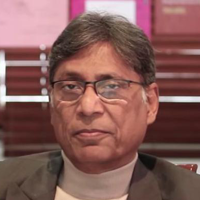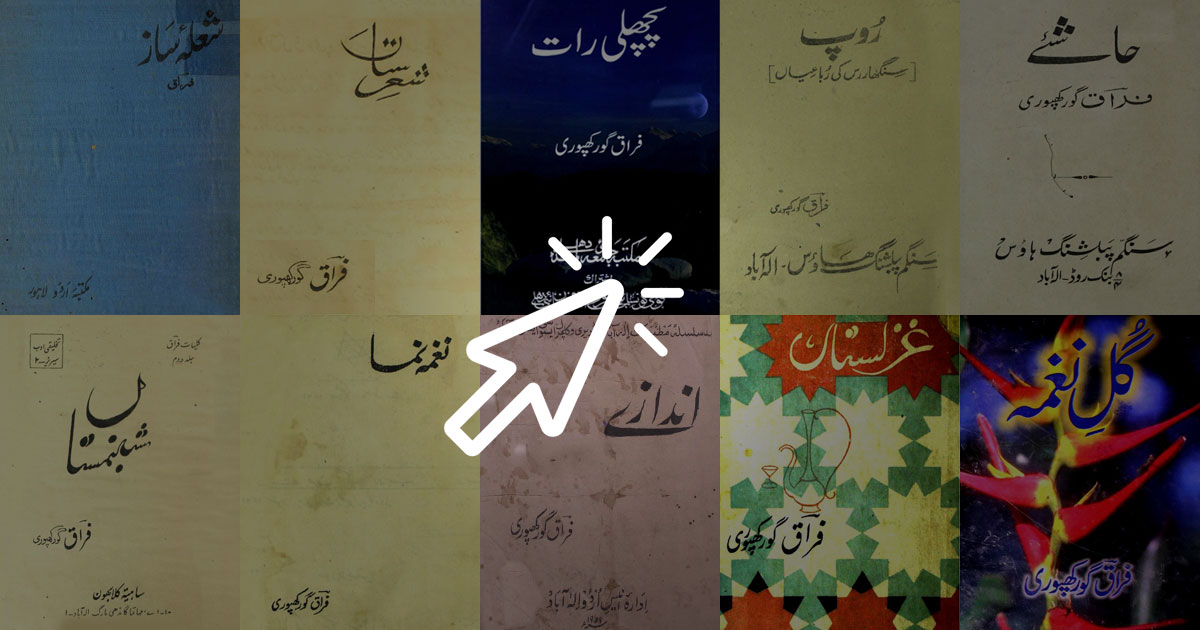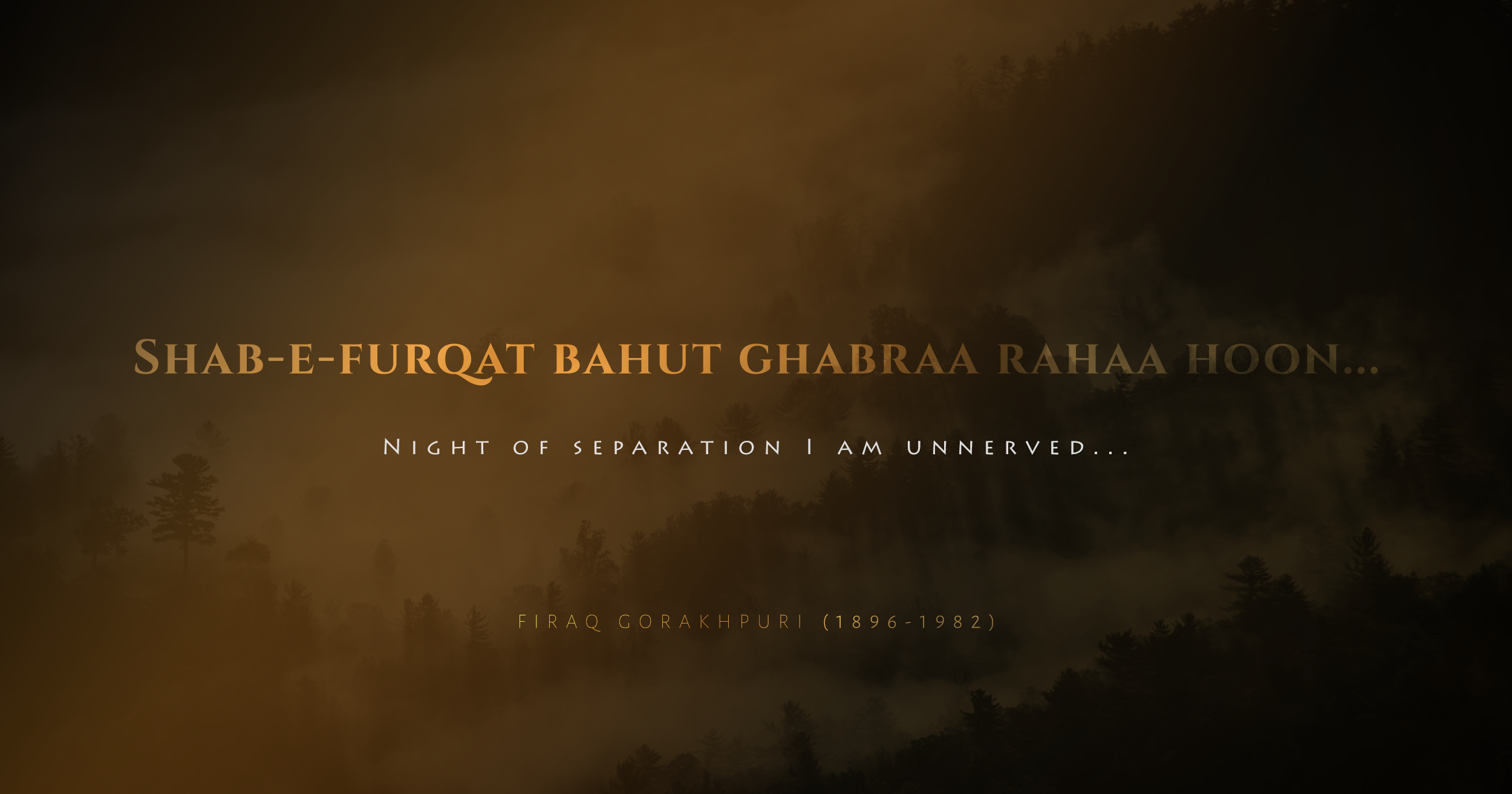
Shab-e-furqat bahut ghabraa rahaa hoon
Night of separation I am unnerved
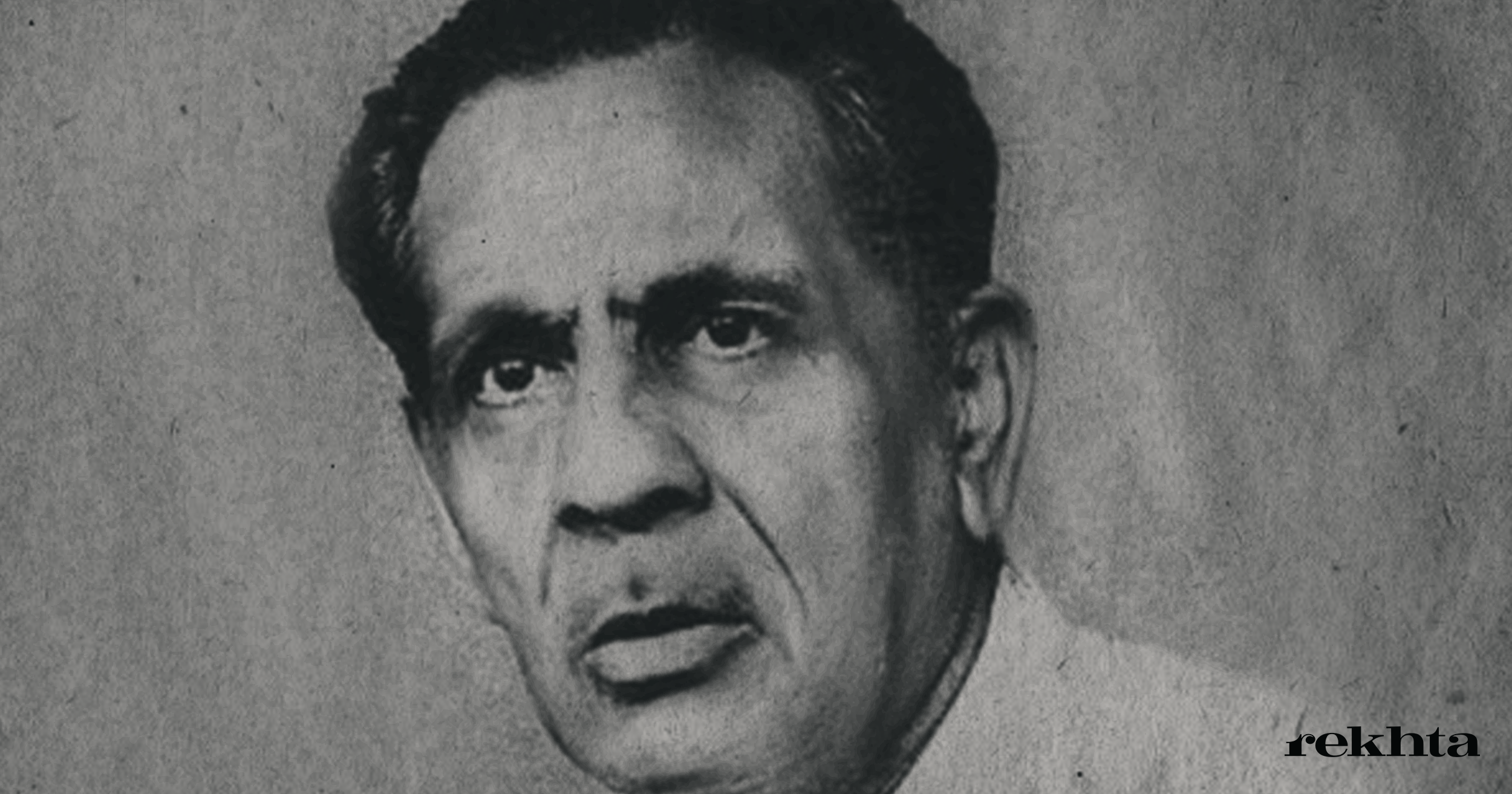
Aane waali naslein tum per fakhr karengi ham asro
Jab un ko ye dhyaan aaiga tum ne Firaq ko dekha tha
Firaq Gorakhpuri, born Raghupati Sahay, learnt the art and craft of poetry from his father, Munshi Gorakh Prasad ‘Ibrat’, who was a lawyer by profession and a poet by inclination. Firaq loved Urdu language and began his education with acquiring his skills in this language which, in the years to come, had to be the chosen medium of his poetic expression. Having completed his early education, he went to Allahabad to receive his higher education at Muir Inter College. When the time came to seek a source of livelihood, he got selected for an administrative position as deputy collector but this was not his profession. Indeed, he was more inclined towards joining India’s freedom movement at Gandhi’s call for non-cooperation with the British. As he followed this path, he was imprisoned like many others who indulged in anti-British activities. On getting back from the prison, he opted to teach—first, at Christian College, Lucknow, and then, at Sanatan Dharm College, Kanpur. Subsequently, he acquired his degree of M. A in English literature and started teaching at Allahabad University. Firaq was highly respected as a poet and was decorated with the highest literary award, the Jnanpeeth, by Sahitya Akademi.
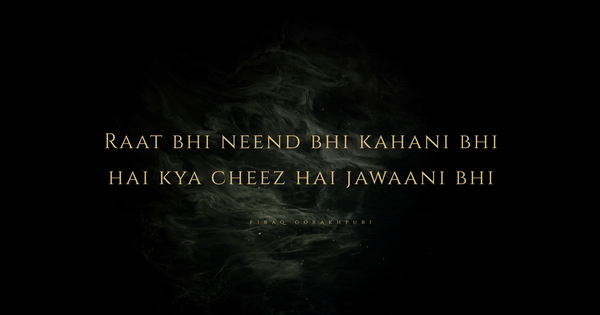
Romantic love, blessings of union, mysteries of night, human yearnings, and life’s ambiguities claimed Firaq’s attention through his entire career as a poet and a philosopher. No other poet in Urdu could draw so creatively upon the Hindu mythology as well as the Hindi and Sanskrit sensibility like Firaq. This unique method afforded him a remarkable space to explore the elements of Indianness in his poetry for which he created his own metaphors and discovered his own symbols. Some critics have claimed that it is incongruous with the typical literary culture of Urdu which, they thought, goes well with Persian rather than Sanskrit literary culture. Contrary to such claims, this indeed is the quality that distinguishes Firaq from all other poets. As one endowed with a comparative view of life and literature, he learnt both from the Indian and English traditions. This implies that he was influenced by Surdas, Kalidas, and Kabeer on the one hand, and the English Romantics poets of the early nineteenth century on the other. By drawing upon such great traditions of the past and by using his individual talent, Firaq evolved as a poet of great worth and lasting value. He spoke in a voice that was indulgent, soft and subtle and found a home in the hearts of his countless readers.
Tum mukhaatib bhi ho qareeb bhi ho
Tum ko dekhein ke tum se baat karoon
Is dau mein zindagi basahar ki
Beemar ki raat ho gai hai
Bahut pehle se un qadmon ki aahat jaan lete hai
Tumhein ai zindagi hum door se pehchaan lete hain
Mehrabani ko mohabbat naheen kehet ai dost
Aah ab mujh se teri ranjish-e-bejaa bhi naheen
Amrit wo halahal ko bana deti hai
Ghusse ki nazar phool khila deti hai
Maa laadli aulaad ko jaise taadey
Kis pyar se premi ko sazaa deti hai
Some of his poetry collections include Naghma-i-Saaz, Ghazalistaan, Sheristaan, Shabnamistaan, Roo-e Kainat, Gul-e Naghma, Dharti ki Karwat, Gul-e Barg, and Roop, a cellection of rubais.
Click on the image to go through his works.
NEWSLETTER
Enter your email address to follow this blog and receive notification of new posts.




